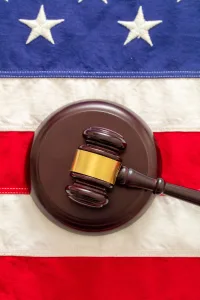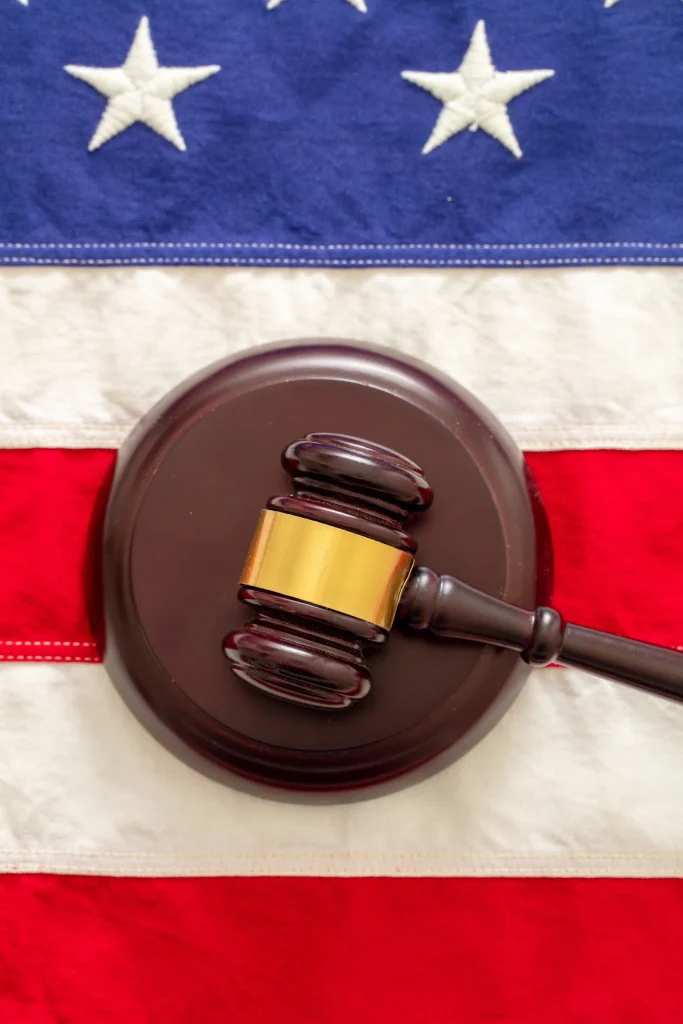The United States Copyright Office (USCO) has recently made a groundbreaking decision regarding the copyright status of images generated by generative AI models such as Midjourney and Stable Diffusion. In this comprehensive article, we delve into the implications of this decision, its effects on the creative industry and AI developers, and the potential future developments in copyright law.
The USCO’s Decision: A Deeper Look
 According to the USCO, images generated by AI models in response to text prompts cannot be copyrighted. The office equates this process to a buyer giving directions to a commissioned artist. The USCO states that although the human user provides the prompt, the AI technology determines and executes the “traditional elements of authorship.” As a result, the human user does not have ultimate creative control over the AI’s output.
According to the USCO, images generated by AI models in response to text prompts cannot be copyrighted. The office equates this process to a buyer giving directions to a commissioned artist. The USCO states that although the human user provides the prompt, the AI technology determines and executes the “traditional elements of authorship.” As a result, the human user does not have ultimate creative control over the AI’s output.
The USCO acknowledges that the level of human creativity involved in a work is a significant factor in deciding whether it can be granted copyright protection. However, it has determined that current AI models cannot generate copyrightable work.
Case-by-Case Inquiry
The USCO has left the door open for copyright protection for works containing AI-generated elements. It states that the answer depends on the specific circumstances, particularly how the AI tool operates and how it was used to create the final work. If a machine produces the work’s traditional elements of authorship, the office will not register it.
The Kashtanova Case: A Test of Copyright Boundaries
In a recent case, the USCO determined that images generated by Midjourney and used in Kris Kashtanova’s graphic novel, Zarya of the Dawn, were not copyrightable. However, the text and layout of the novel could receive copyright protection. Kashtanova’s lawyers argue that the USCO applied the wrong legal standard by focusing on the output rather than the input. This case serves as a test of the boundaries of copyright law, and it highlights the complexities involved in determining the extent of human creativity in AI-generated works.
Implications for the Creative Industry: Challenges and Opportunities
 This decision has far-reaching implications for the creative industry. Artists, writers, and musicians using AI-generated content may face challenges in securing copyright protection for their works. The ruling may deter some creators from utilising AI tools, as they may be concerned about potential copyright disputes.
This decision has far-reaching implications for the creative industry. Artists, writers, and musicians using AI-generated content may face challenges in securing copyright protection for their works. The ruling may deter some creators from utilising AI tools, as they may be concerned about potential copyright disputes.
On the other hand, this decision could encourage open collaboration and sharing of AI-generated content without the constraints of copyright law. This could foster innovation and lead to the development of new creative techniques and ideas.
The Role of Open Collaboration
Open collaboration, fuelled by the sharing of AI-generated content, could result in a more dynamic and innovative creative environment. Creators could collaborate on projects that leverage AI-generated elements, potentially leading to the creation of entirely new forms of art, literature, and music. This open environment could stimulate greater experimentation and cross-pollination of ideas across different creative domains.
Impact on AI Developers: Adapting to New Realities
AI developers may face increased scrutiny and questions about the extent of human involvement in their models’ output. This decision may also prompt developers to design AI systems that better incorporate human creativity, allowing users to exercise more control over the output and possibly qualify for copyright protection.
The Push for More Advanced AI Systems
As developers strive to create AI systems that better integrate human creativity, we may witness a new generation of AI tools that enable more seamless collaboration between human creators and AI-generated content. These advanced systems could blur the lines between human and machine-generated creativity, ultimately challenging traditional notions of authorship and intellectual property rights.
Copyright Law and Policy Issues: An Ongoing Discussion
The USCO has initiated a project to further explore copyright law and policy issues related to AI. This follows requests from Congress and the public for further clarification on AI and copyright matters. In the coming months, the USCO will host panel discussions and solicit public comments on a wide range of copyright issues pertaining to the use of AI.
The Importance of Public Input
The USCO’s initiative to solicit public comments on AI-related copyright issues underscores the importance of a diverse range of perspectives in shaping future policy decisions. As AI technology continues to evolve, it is crucial for policymakers to understand the concerns and aspirations of creators, AI developers, and the general public. Public input can help ensure that future copyright laws strike the right balance between protecting intellectual property rights and fostering creativity and innovation.
Future Developments: Anticipating Changes in AI Technology and Copyright Law
 As AI technology continues to advance, the line between human and machine-generated creativity may become increasingly blurred. The USCO’s current ruling is based on its understanding of generative AI technologies available today. As AI systems become more sophisticated and better integrated with human creativity, it is possible that future rulings may evolve to accommodate these advancements.
As AI technology continues to advance, the line between human and machine-generated creativity may become increasingly blurred. The USCO’s current ruling is based on its understanding of generative AI technologies available today. As AI systems become more sophisticated and better integrated with human creativity, it is possible that future rulings may evolve to accommodate these advancements.
The Role of Emerging Technologies
Emerging AI technologies, such as GPT-4 and other advanced language models, may further challenge the boundaries of copyright law. As these technologies enable more sophisticated human-AI collaboration, the legal landscape will need to adapt to account for these new forms of creative output.
The Need for a Flexible Legal Framework
A flexible legal framework that can accommodate the rapid advancements in AI technology is essential for fostering innovation while protecting creators’ rights. Policymakers, the creative community, and AI developers must work together to develop adaptable copyright laws that can address the unique challenges posed by AI-generated content.
Conclusion: Navigating an Uncertain Future
The USCO’s decision not to grant copyright protection to AI-generated images has sparked debate and raised questions about the future of copyright law in the age of AI. While this ruling may present challenges for creators and AI developers, it also opens up new opportunities for collaboration and innovation. As AI technology continues to advance, the conversation surrounding intellectual property rights and AI-generated content will undoubtedly continue to evolve.
In the meantime, creators utilizing AI-generated content should be aware of the limitations imposed by the USCO’s decision and consider how it may impact their work. By engaging in an ongoing dialogue with policymakers, AI developers, and the public, the creative community can help shape a more equitable and forward-looking approach to intellectual property rights in the age of AI.
